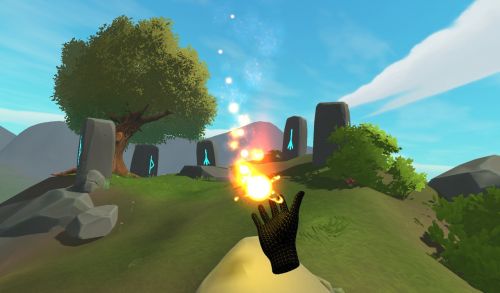
Using virtual reality for the rehabilitation of children with cerebral palsy is the objective of the Telos(Tailored neurorehabilitation thErapy via multi-domain data anaLytics and adaptive seriOus games for children with cerebral palsy) research project,now in the clinical trial phase.
Funded by Regione Toscana under the “Ricerca Salute” (health research) call of 2018, the project involves the Sant’Anna School of Advanced Studies, the Institute of Clinical Physiology of the National Research Council (CNR-IFC), Azienda ospedaliero-universitaria pisana (Aoup), Azienda USL Toscana nord ovest and Istituto Irccs De Bellis in Castellana Grotte.
The clinical trial activities will assess the efficacy of an innovative rehabilitation therapy supported by virtual realitycompared to the standard rehabilitation therapy adopted for children with hemiplegic and diplegic cerebral palsy.
Specifically, in the Aoup, the trial will be carried out in the Departmental Section of Neurocognitive Rehabilitation of Developmental Age of the Maternal and Paediatric Department, while in Azienda USL Toscana nord ovest the trial is being carried out in the Rehabilitation Medicine Department of Versilia Hospital.
The rehabilitation exercises, aimed at improving manual skills and balance, will be in the form of video games (known as serious games) and performed in immersive virtual reality using technologies developed by the Institute of Mechanical Intelligence of Sant’Anna School in Pisa, coordinator of the project.
Virtual immersion will allow children to take part in a multisensory gaming experience full of auditory and visual stimuli, fully perceived, and tactile stimuli, perceived through wearable actuators. This will also allow children to experience tactile contact with the virtual target objects during grasping and manipulative actions.
The virtual environment, the playful aspect, the variety of exercises, the progression by stages of upgrading managed by the therapist are all designed to offer a highly engaging, motivating and rewarding experience, capable of promoting and supporting children’s motor learning.
In addition, the virtual environment allowsthe objective measurement – through new kinematic indices and advanced data analysis technologies developed in the project by the CNR-IFC – of the performance of children in the required actions and the accurate monitoring of their progress during the entire therapy. Finally, an element not to be underestimated in the light of the current pandemic situation is the fact that this type of rehabilitation therapy can be carried out at the patient’s home, in a scenario of remote monitoring, control and supervision (telemedicine).

